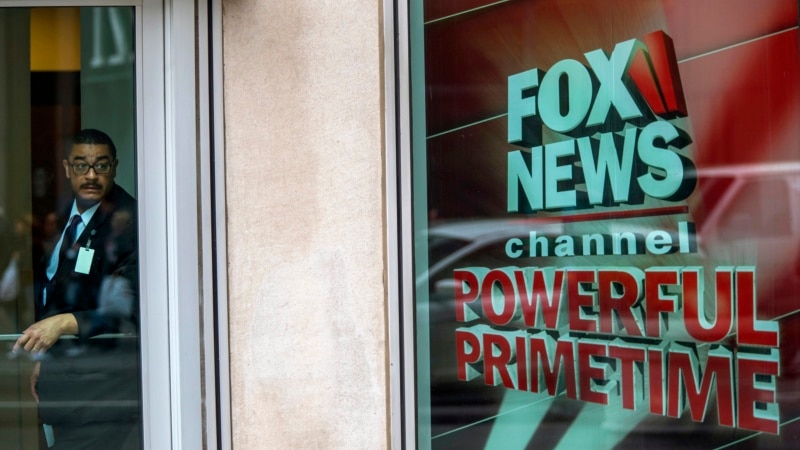
U.S. television channel Fox News says a court decision holding one of its former journalists in civil contempt should be appealed.
A federal court on Thursday held Catherine Herridge in civil contempt for refusing to disclose a key source for a 2017 Fox News investigative series.
The judge imposed a fine of $800 per day until Herridge complies. The fine will not go into effect immediately, to give the journalist time to appeal.
Fox News in a statement shared with VOA Friday said the decision has troubling implications for media.
“Holding a journalist in contempt for protecting a confidential source has a deeply chilling effect on journalism,” a Fox News spokesperson said. “Fox News Media remains committed to protecting the rights of a free press and freedom of speech and believes this decision should be appealed.”
The case centers on a series of reports that Herridge did for Fox News in 2017, about a Chinese American scientist, Yanping Chen, who the FBI investigated but never charged.
Herridge examined Chen’s ties to the Chinese military and raised questions about whether the scientist was using a professional school she founded in Virginia to help the Chinese government get information about American servicemembers.
The stories relied on what Chen’s lawyers contend were items leaked from the probe, including snippets of an FBI document summarizing an interview conducted during the investigation, personal photographs and information taken from Chen’s immigration and naturalization forms and from an internal FBI PowerPoint presentation, The Associated Press reported.
Chen sued the FBI and Justice Department in 2018, saying her personal information was selectively leaked to “smear her reputation and damage her livelihood.”
In handing down the decision against Herridge on Thursday, U.S. District Judge Christopher Cooper wrote that he “recognizes the paramount importance of a free press in our society” and the critical role of confidential sources in investigative journalism.
But the judge said the court “also has its own role to play in upholding the law and safeguarding judicial authority.”
Herridge refused under oath to reveal source
Herridge in August was ordered to answer questions about the source in a deposition with Chen’s lawyers.
When Herridge was interviewed under oath in September by a lawyer for Chen, she declined dozens of times to disclose her source.
At one point, she said, “respectfully I am invoking my First Amendment rights in declining to answer.”
One of Herridge’s lawyers, Patrick Philbin, has said that forcing the journalist to hand over her sources “would destroy her credibility and cripple her ability to play a role in bringing important information to light for the public.”
The Associated Press reported that in court papers, Philbin said that disclosing the identity of Herridge’s sources raises national security concerns, adding there is a “serious risk” that Chen “was involved in making information about U.S. military members available” to the Chinese.
The Reporters Committee for Freedom of the Press, or RCFP, filed a friend of the court brief in support of Herridge.
In it, the RCFP said that if the court did find Herridge in contempt, “it should impose only nominal sanctions and stay them while Herridge pursues her appeal of the court’s denial of her motion to quash Chen’s subpoena.”
“The ability of journalists to assure sources that their identities will remain confidential is central to preserving the press’s structural role as a check on government, particularly in the national security sphere,” RCFP said in a statement in January.
“When sources stop talking to journalists because they fear that their identities cannot be protected, that loss impairs the electorate’s ability to make informed political, social, and economic decisions, and to hold elected officials and others in power accountable,” the statement said.
Herridge, who was recently laid off by CBS News, is expected to appeal the court decision.
Some material for this story is from The Associated Press.
